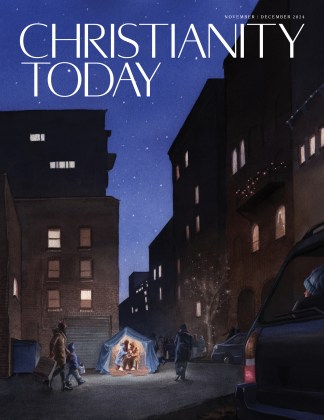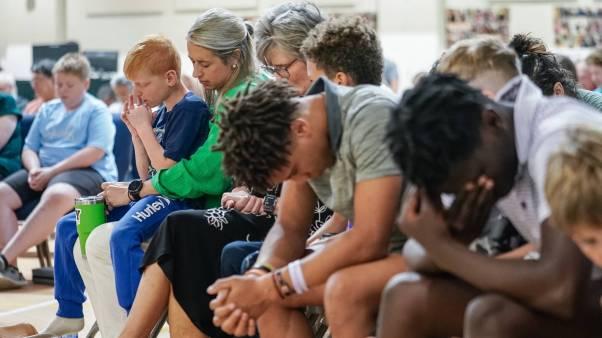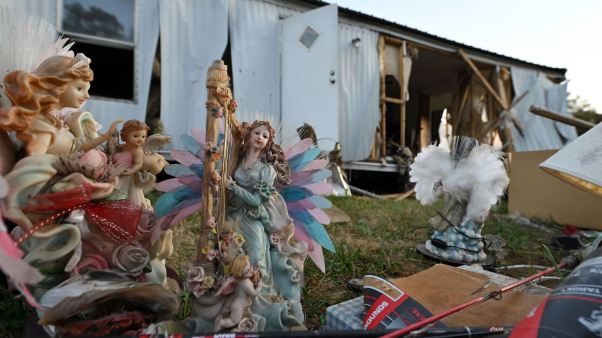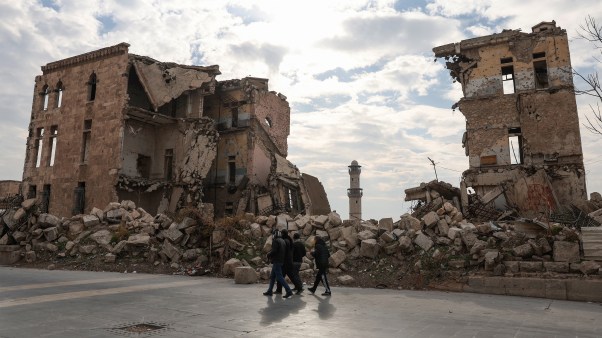In the days since the 2024 election, Latino evangelicals across the United States have been left grappling with uncertainty about what immigration policy will look like under the incoming administration. For months, we have heard a cacophony of mixed signals.
On the one hand, there have been declarations of mass deportations alongside promises to deport violent criminal immigrants. On the other hand, private conversations and reassurances from political insiders seem to signal a different course entirely. What are we to make of this? And most importantly, what is the line in the sand when it comes to the future of our immigrant communities?
The safety of our communities must remain a top priority, including, at times, the deportation of violent criminals. But there is more to the immigration debate than the criminal element alone, and as Latino evangelicals, we need a broader conversation about the future of our immigrant brothers and sisters—many of whom are contributors to our churches and part of the moral fabric of our communities.
Many Latino pastors are asking these questions: Who will pick up small children at school and care for them if their parents are detained and deported? The children and families who worship with us and attend our Sunday schools, how will they be treated? What happens if, in mixed-status families, parents are detained while their children are in school waiting to be picked up? Who will be responsible for them? Will they be placed in the foster-care system?
The ambiguity surrounding the incoming administration’s approach to immigration is both frustrating and concerning. Rhetoric alone—whether it is harsh talk of mass deportations or private reassurances that certain groups will be spared—does not equate to policy. Words are powerful, but they must be backed by clear, actionable policies that reflect respect for the rule of law, compassion, justice, and practical considerations for all people, regardless of their immigration status.
The promises of a heavy-handed approach to immigration—often framed as necessary for national security and public safety—ring hollow when we are offered no clear blueprint. The rhetoric of mass deportations may appeal to certain constituencies, but it raises serious questions about mass deportation—including its feasibility, its moral implications, and the consequences it would have on families, communities, and our nation.
At the same time, we must acknowledge the private reassurances that some have claimed to receive in informal conversations with the incoming administration: words like “Don’t worry; we’re not going after the good ones.”
These private assurances are not guarantees and do little to alleviate Latino communities’ deep fears of uncertainty. While these assurances may be intended to provide a bulwark against critiques of mass deportations, they lack the weight of policy. In the absence of concrete commitments, they fail to reassure those who fear being separated from their families, their homes, and their communities.
We are not asking for an immigration policy based solely on political expediency or partisan allegiances. We seek a policy that respects the rule of law, recognizes the humanity of all immigrants, treats them with dignity, and upholds the moral values that lie at the heart of the gospel.
Creating an immigration system that works both helps with national security and meets the needs of our families. This process is about finding a solution that balances law enforcement with compassion and recognizes the contributions immigrants have made to this country—whether as workers, business owners, or active members of their local churches.
Fear and chaos are not policies, and they certainly should not be the basis for decisions that impact the lives of millions. We as evangelicals are called to speak truth, to seek justice, and to love our neighbors as ourselves. For many in our communities, that means asking for more than just vague promises or contradictory public and private rhetoric. We seek real clarity—clarity on what the incoming administration’s immigration policy will be and how it will ensure safety, dignity, and opportunity for all individuals, regardless of their immigration status.
Will the incoming administration’s immigration policy be one that honors the sacredness of family, upholds justice, and provides pathways for people to live and work with dignity? Or will it be a policy shaped by fear and divisiveness, one that further marginalizes our most vulnerable neighbors? Our leaders both in the church and in government must provide answers, not rhetoric. Clarity, not confusion.
This is not the first time we’ve responded to the immigration crisis. No matter what happens, we need to be the church and respond as the church. However, without clear delineation, we do not know what our pastoral and prophetic response should be. Will we be responding to mass deportations and separation of families? Will the National Guard be called upon to help with deportations? Will protections like the Temporary Protected Status (TPS) or Deferred Action for Childhood Arrivals (DACA), which many in our communities have received, be rescinded? Rhetoric and private disclaimers are not answers.
Our faith compels us to look beyond the headlines and consider the human faces behind the policies. It is time for the rhetoric to match the reality—and for the incoming administration to make clear the kind of country it seeks to build: one that lives up to its ideals and honors the lives of all people, including immigrants.
Gabriel Salguero is president of the National Latino Evangelical Coalition.











